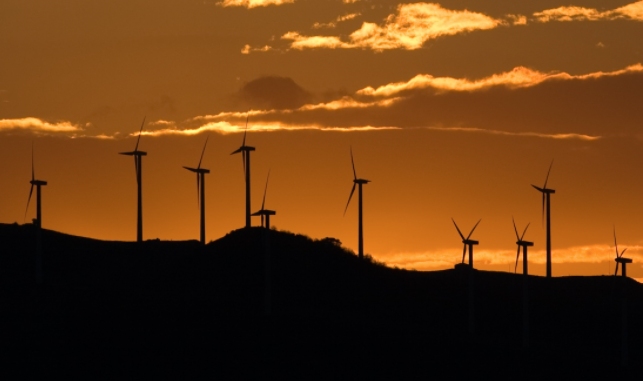Co-author Leonardo E. Stanley
Clean technology has evolved. Not only is it possible to produce renewable energy on a large scale, it is also more cost-effective. However, the cost of a wind turbine installed in Patagonia is much higher than one installed in Dusseldorf. In South America, this technology faces a capital cost that is prohibitive. And this is because developing countries don’t possess the technology and must import all capital goods and associated inputs. Access to the technological edge is a factor in every process of productive transformation and industrialization, and this generates conflicts between those who have the knowledge and those who have it not.
Today, negotiations over technology take place in the shadow of an international economic law framed by the neoliberal paradigm, where science and technology occupy a privileged place in the legal order and in the accumulation process. The legal framework for foreign investment and intellectual property currently restricts the transfer of technology to developing countries. This results from the various bilateral agreements, including the Agreement on Aspects of Intellectual Property Rights of the World Trade Organization (WTO), which regulate foreign investment and technology with a pro-investor bias.
The tension between those who hold the technology and those who have to assume climate commitments is framed in a context of a growing consensus in favor of concrete actions for the environmental crisis. Initially localized in developed countries, the “green wave” has gained followers around the world. It all began with the publication of a report elaborated by the Club of Rome in 1972 and the first questions about the oil industry. With the Rio Declaration in 1992, environmental issues became a multilateral issue. Slowly, the unlimited rights that benefited investors began to be questioned.
Slowly but inexorably, the clean industry that began its march in those days has now reached such maturity, which allows us to put an end to the reign of “black gold”. But just as on the one hand we have the challenge of the climate crisis, on the other we have the economic and legal discipline. And within this framework, the climate crisis came, among other things, to question the limitations of the technology transfer scheme. The seriousness of the moment makes it necessary to transform it now.
Unfortunately, good intentions are not enough. One should just take a look at the various international arbitrations initiated against the States that tried to put an end to coal-based energy production and were sued by the companies in the sector. The oil companies, who designed these mechanisms to protect themselves from the changes that promised decolonization, are now using them to protect themselves from the changes needed to deal with the climate crisis. The Energy Treaty ended up enshrining rights that are detrimental to the transition process.
The same could happen in South America if countries decide to limit, or even ban, coal-fired power plants or oil activity. Investors could threaten or sue them at the International Centre for Settlement of Investment Disputes (ICSID), a scheme associated with the World Bank. The good news is that the World Bank recognizes the need to move forward with the energy transition. The bad news is that it does little to transform the legal and institutional framework that it helped to establish four decades ago and that today hinders the process.
Fortunately, a consensus is emerging in favor of transforming the international law that hinders technology transfer and overprotects foreign investors. A few years ago, experts Karl Sauvant and Howard Mann proposed a foreign investment scheme that prioritizes quality over quantity, equal rights, social improvement, environmental protection and transparency.
One of the main aspects that stand out in economic terms is that the investment should promote research and development in the host country. We believe that any new treaty should also recognize technology transfer, another key aspect when discussing energy transition in the South.
The regional vision
The Economic Commission for Latin America and the Caribbean (ECLAC) is not only a wonderful source of regional thought. It is also one of the few organizations that has defended the importance of productive diversification and technological progress to pull the region out of economic and social backwardness. Accordingly, the issue of technology transfer has always been present in the elaboration of its proposals (as well as in the manual of the Andean Community of Nations – CAN). Before it emphasized the need to access technical knowledge to advance industrialization. Today it highlights the importance of access to solve environmental issues as well, including the fight against climate change.
Even though there are numerous studies that address environmental issues, little is said about the institutional restriction to which the region is subjected amid the prevailing neoliberal legality. This gap must be addressed with the developed countries so that promises can be transformed into actionable solutions. The international community needs to rethink the international rules governing intellectual property and the regime for the promotion, protection and facilitation of foreign investment.
Leonardo E. Stanley is a research associate at the Center for the Study of State and Society – CEDES (Buenos Aires). Author of “Latin America Global Insertion, Energy Transition, and Sustainable Development”, Cambridge University Press, 2020.
Translated from Spanish to English by Ricardo Aceves.













